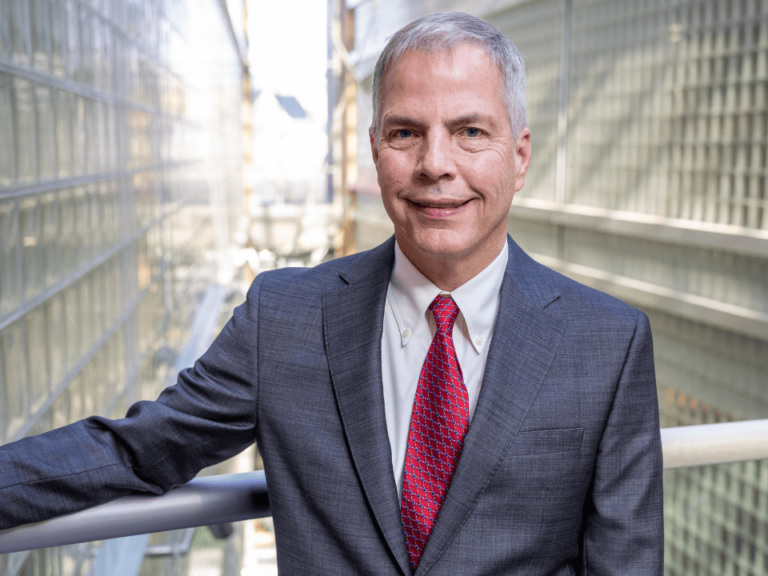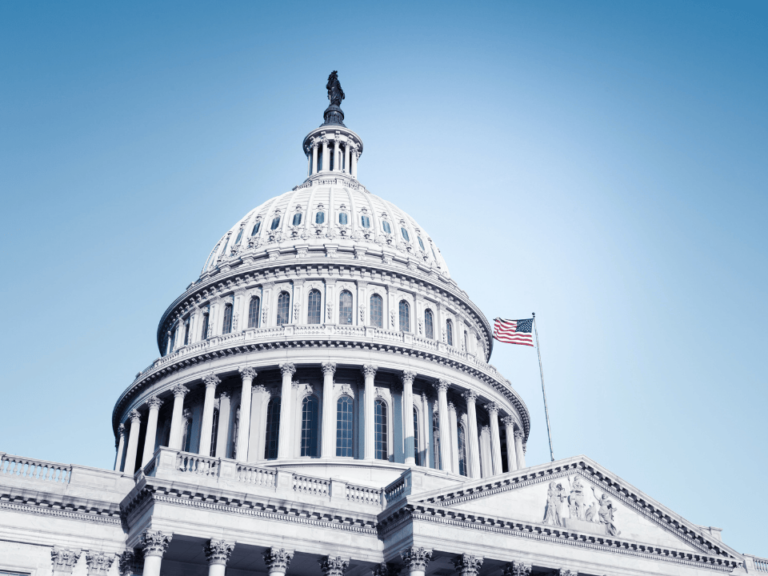Through the controversies triggered by the National Dialogue on Cancer, John Seffrin relied on his ACS ally Allan Erickson.
It just seems to me that even if there is a quarter worth of concern about e-cigarettes causing health issues, there is nothing like tobacco. It seems to me that if we keep pushing those kinds of technology forward. I think Philip Morris has a long-term goal of a smoke-free world.
Erickson now runs a small group called the National Tobacco Reform Initiative, which includes Seffrin and Derek Yach, head of the Foundation for a Smoke-Free World, which received funding from Philip Morris International to spend $80 million a year on cancer research.
Last year, NTRI asked to meet with then Vice President Joe Biden in an apparent effort to convince him to refocus his cancer moonshot.
Does Erickson have a role in Yach’s research initiative? What does he think of Seffrin’s current stance on dealing with tobacco companies?
Erickson spoke with Paul Goldberg, editor and publisher of The Cancer Letter.
Paul Goldberg: I wanted to ask you whether you are involved with this Global Foundation for a Smoke-Free World.
Allan Erickson: I am not. No, I am not. No. Not at all. The founder and president is Derek Yach. I am in touch with them, but I have nothing to do with them. Zero.
But John Seffrin is with them.
AE: John Seffrin—yes. I think he was indicated in the press release. I don’t know if he has any particular exact role at this time, but he certainly has been sympathetic to their views and what Derek is doing. I personally have had a long career and relationship with Derek Yach when he was at WHO. I handled all of Latin America for years. He worked very closely with me—a terrific guy. He developed the Framework Convention for Tobacco Control. He is a big-time guy and a very excellent public health leader.
Do you support this idea of taking money from Philip Morris?
AE: I personally do. Yes. To be honest, I used to be at the Cancer Society and other groups for years and years and years, but I have been retired for quite a while. They are very anti-electronic cigarettes and all that stuff. I spent 45 years in the boondocks, promoting cancer control through the Cancer Society.
But I think things are moving in the direction of harm reduction. When you have a half-a-million people dying every year from tobacco. The electronic cigarettes and less harmful products are for sure increasing in terms of sales and utilization. Eight or nine million people now smoke electronic cigarettes on a regular basis. Many of them smoke both. It doesn’t seem to me—and maybe I am missing a lot, but I don’t think so—there is a big shift.
I know how totally horrible tobacco is for a human being, and what it does to you—700 chemicals and all that stuff. It’s quite obvious to me that these kinds of cigarettes, these kinds of smoke products that Public Health England and other groups have endorsed—it just seems to me that even if there is a quarter worth of concern about e-cigarettes causing health issues, there is nothing like tobacco. It seems to me that if we keep pushing those kinds of technology forward.
I think Philip Morris has a long-term goal of a smoke-free world.
So, you are seeing this as a reasonable way to go? ACS doesn’t support this Global Foundation for a Smoke-Free World.
AE: No. Not at all. Most health groups don’t at this point in time. I have been a soldier for ACS for half my life. I think a lot of people have hidden their heads in the sand. They are just so totally opposed to e-cigarettes, it drives them nuts.
And you are saying e-cigarettes are potentially a way to go?
AE: Not necessarily e-cigarettes, but I think there is a whole range of new products that are coming up that could potentially be better and better and better—less harmful. I don’t think e-cigarette is the panacea, but it’s certainly one of a whole series of new products coming up in the tobacco industry that are going to be safer, I think.
I see you wrote a letter to Joe Biden that seems to suggest that you are in with that group, too. But you have not played any formal role in this, or have you?
AE: Zero. Honestly, I haven’t. But I have dedicated my whole life to cancer control, and if this is useful—and I am convinced it is—then it seems to me it would be nuts not to embrace that cautiously and move forward.
Do we know what Dr. Seffrin is doing with that? Have you had a chance to talk to him?
AE: We haven’t recently. John and I are very close friends. He has been very, very careful over the years to have any relationship with tobacco companies—just as pure a public health guy as you will ever find in the world. I am not sure how it’s developed, but he is coming around, saying that he had a lot of reading done, and thinks now that there is great promise here and we ought to take the gamble for the health of America.
Interesting…
AE: How many years have you been with The Cancer Letter?
Oh my… I guess around thirty.
AE: Wow… You and I had a little bit of a flare-up back in the late eighties [sic.] when I staffed, and basically organized the National Dialogue on Cancer.
I am not sure it was a flare-up.
AE: My friend who worked closely with me on that was Paul Van Nevel, whom you knew. Unbelievable guy. We worked very close for years.
What was interesting with the Dialogue was that no matter which step you took outside ACS, there would always be PR firms representing tobacco involved in it. I am concerned that this might be happening again—to John. Or you.
AE: Be more specific, what do you think is happening to me?
I am concerned that they may be taking advantage of you.
AE: There is no one coercing me, I’ll tell you. And John. There is no money involved, there is no nothing other than in our hearts we know that this is a good thing to explore and go forward with. We are just absolutely convinced of that.
So, you are seeing some role for yourself in this that’s an unpaid role?
AE: None. Zero.
No formal role? No paid role?
AE: I work with something we call the National Tobacco Reform Initiative, and Derek is on that, and we have 11 other people on that group. I am kind of the coordinator of that group.
Four months ago, we did a survey of 120 tobacco control leaders. One of the three recommendations has to do with encouraging FDA to come up with a more rational regulatory system, and they have done that.
And we are thankful that that has happened.












